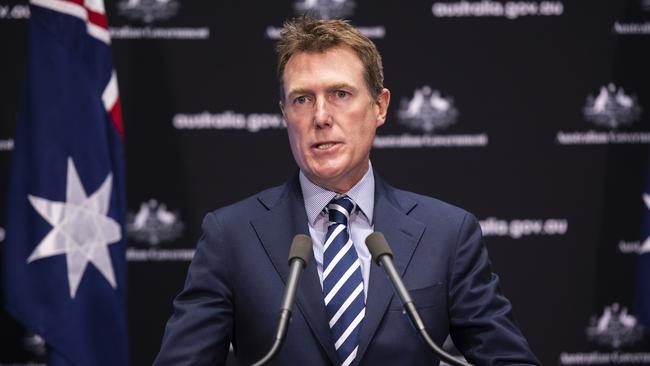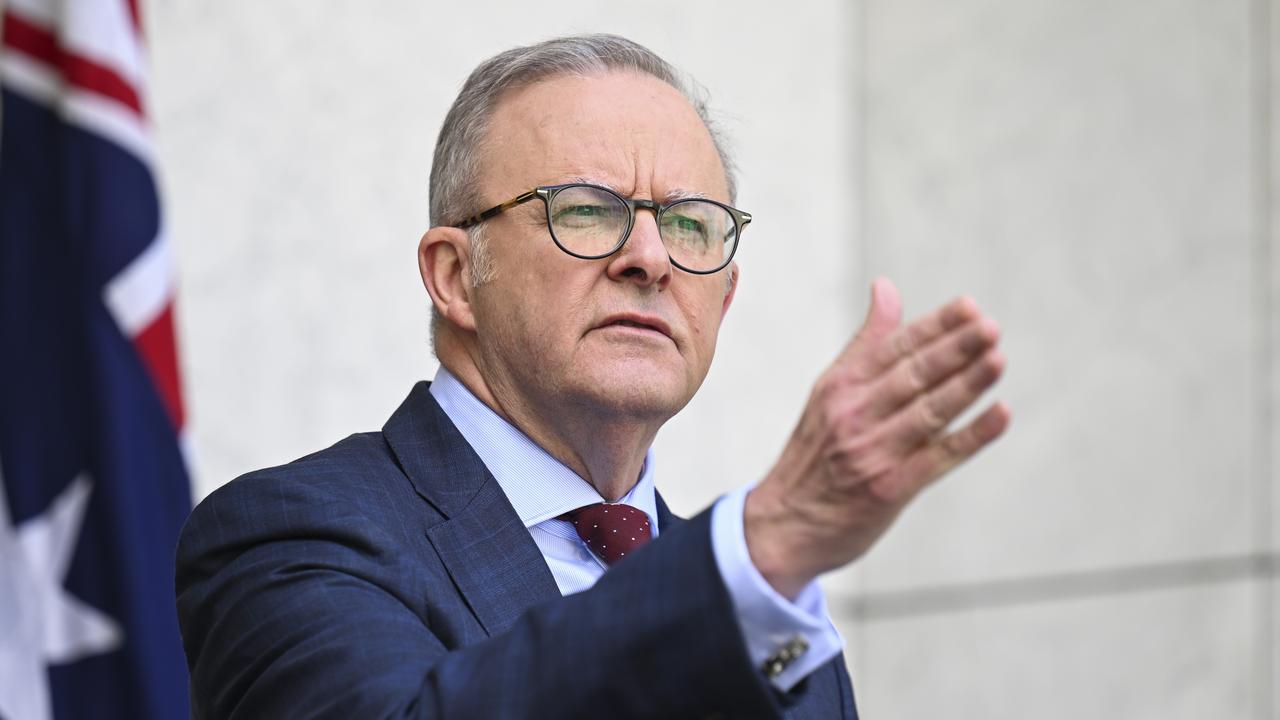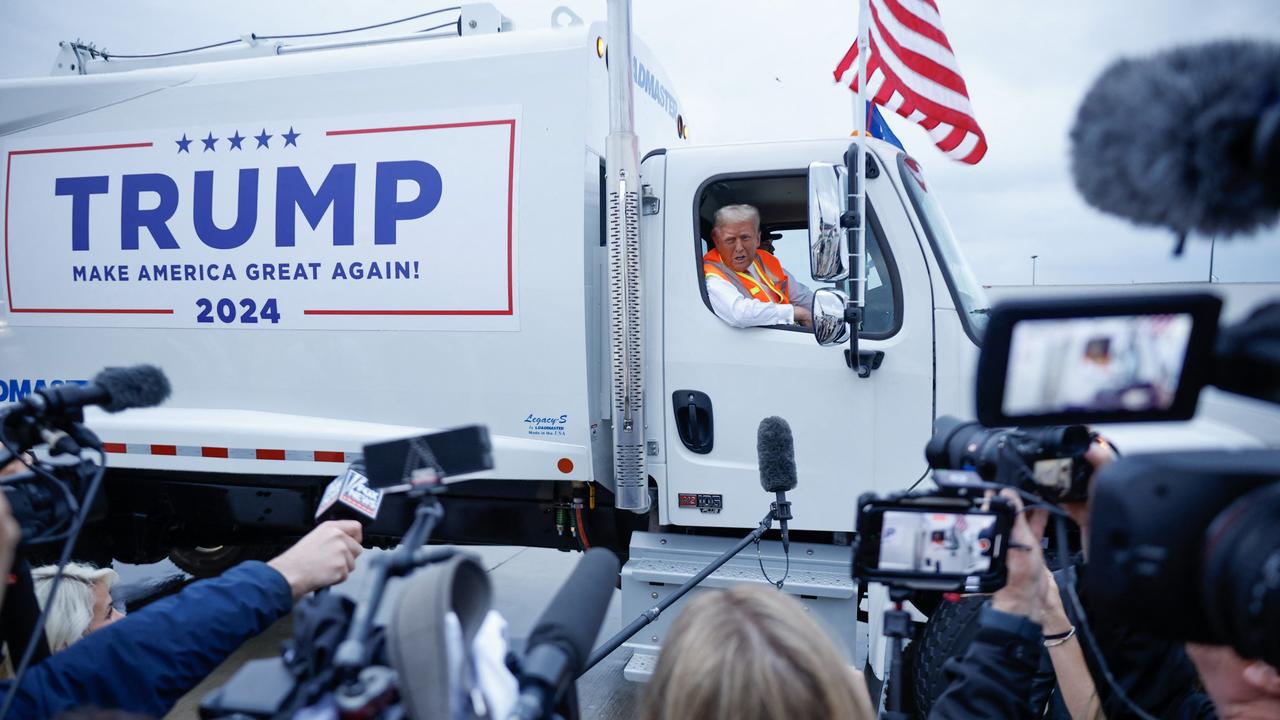Coronavirus: A-G Christian Porter puts jobs growth ahead of pay rise
Christian Porter has warned granting a $30 a week minimum wage increase would come at the expense of employment.

Attorney-General Christian Porter has warned granting the ACTU claim for a $30 a week minimum wage increase would reduce the ability of struggling employers to create jobs as the economy recovered from the coronavirus pandemic.
Declaring Australia to have the highest minimum wage in the world, Mr Porter said it was “basic economics” that awarding the four per cent increase to low-paid workers would come at the expense of employment.
In a new submission to the Fair Work Commission on Tuesday, the ACTU declared the $30 a week minimum wage increase would be the most economically efficient and fairest way to "drag our country out of recession”.
Rejecting employer calls for a minimum wage freeze due to the impact of the pandemic, the ACTU said overall wage growth would “sink below one per cent” this year if the commission did not grant an increase from July.
It urged the commission’s expert minimum wage panel to reject the government's call to prioritise keeping workers in jobs when deciding the amount to be granted. It said the Fair Work Act required the panel to balance a range of factors, including the sustainability of the national economy and relative living standards, and the needs of the low paid.
“The panel must not take the view that all businesses must be kept viable at all costs and accordingly implement that view through wage suppression to a level that permits that goal being achieved,” it said.
But Mr Porter, who is also the Industrial Relations Minister, said the commission review was being conducted in the context where Australia had the highest minimum wage in the world and business was dealing with the impact of the pandemic as well as appropriate government restrictions on their operations.
“I would respectfully say that there is very high premium on jobs and creating jobs and on employment and preserving employment at the moment and you wouldn’t want to do things that unnecessarily jeopardised a recovery which has at its very centre the creation and preservation and growth of jobs and employment,” he told ABC television .
“I think it’s matter of basic economics, particularly during periods of very high stress, when businesses have suffered massive impact on their turnover and on their profitability, that asking for a not insubstantial increase to what is already the highest minimum wage in the world would come necessarily at the trade off of the amount of employment that you could generate during a recovery phase. I think that’s just basic economics.”
Unions said the duration of government measures to support employment and business during the pandemic was significant because they extended into what might reasonably be expected to be a recovery period.
“It is clear that the economic conditions brought about by the pandemic are the product of health policy initiatives, rather than market failures or structural changes, with most predictions of recovery being linked to a lifting of social distancing and related restrictions,” it said.
The ACTU was responding to questions on notice from the commission. Given many businesses have restrictions on opening, particularly businesses within retail trade and accommodation and food services, the commission asked “how does increasing the minimum wage improve employment in these circumstances?”.
The ACTU said the government had initially said restrictions would be required for six months but recent evidence suggests they might be substantially less onerous by July.
“On the other hand, general economic and consumer confidence is likely to be at extremely low levels in the second half of 2020 given the dramatic declines in output and employment taking place at the moment,” it said.
“Other things being equal, corporations, consumers and other private economic actors will be looking to restore their own economic balance sheets in the later part of this year. In particular, consumption expenditure is likely to be dramatically constrained.
“In these circumstances a modest increase in the wages of those workers - who have the largest marginal propensity to consume and who unfortunately do not have the luxury to save increases in their income - will provide the most economically efficient and fairest way to drag our country out of recession.”
The ACTU said it remained of the view that the stimulatory effect of a minimum wage increase, particularly during a recovery phase, was a matter that should be taken into account by the panel.
“If there is no increase in the minimum wage, overall wage growth this year will sink below 1 per cent,” it said. “At a moment when Australia’s overall economy is already teetering on the edge of widespread deflation (with devastating consequences for aggregate demand and financial stability), accentuating deflationary pressures would be counterproductive to any economic recovery.”
Rejecting employer attempts to link minimum wage increases to productivity improvements, the ACTU said there was little merit in the argument, given low paid workers in award reliant industries had “next to no control over the work process and investment required to generate that productivity”.
“We contest arguments that freezing or reducing labour costs could somehow restore business confidence and preserve employment levels (even as entire sections of the economy effectively shut down); they are reminiscent of similar arguments made by market fundamentalists at the beginning of the 1930s.”



